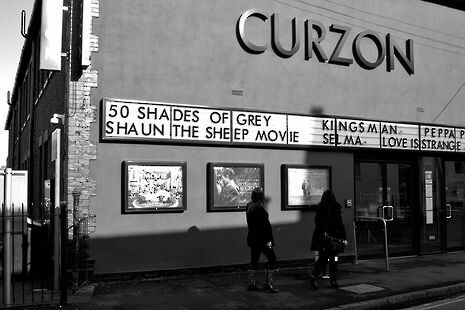The small screen argument
Seeing films in the cinema isn’t the be all and end all, writes James Dilley

Julianne Moore recently claimed that “a movie never looks the same on television”. Criticizing the increasingly common practice of releasing films simultaneously in cinemas and on internet streaming services, Moore took her little stand during a panel debate at a CinemaCon event in Las Vegas.
According to Moore, star of recent indie picture Still Alice, the “theatrical experience” filmmakers and actors seek to create is damaged by these new release formats. The implication, I suppose, is that they diminish the special realm of the cinema screen, emboldening the humble television to the detriment of film-going spectacle.
To some extent, I can see her point. For me, there are particular films that were simply made for the cinema. I doubt, for example, that I would have been struck so forcefully by Alfonso Cuarón’s Gravity had I first watched it in two-dimensional, Netflixy laptop form. There was something about that opening scene –where George Clooney and Sandra Bullock are zipping about the Hubble Space Telescope over the backdrop of a silent, pearly Earth – that was stunning while plastered across my local Odeon’s Screen 1. What’s more, the 3D format completely worked; Cuarón had crafted a piece of cinema as immersive as it was ambitious. In a purely ocular sense, it was wholly convincing.
I think the same of that other early-decade blockbuster, Avatar. Having watched it for a third time on a friend’s perfectly nice Sony, I came away feeling somewhat underwhelmed – in stark contrast to the initial viewing, when the big screen once again provided a perfectly cinematic setting for James Cameron’s clunky but beautiful work.
I could cite countless other examples, and there can be little doubt that the cinema provides the ideal environment for film. It is, after all, its natural home, and I think you can sense that in many, many pictures.
Yet we shouldn’t be so quick to dismiss the streaming revolution that I believe we are currently experiencing. Like so many other things, the proliferation of domestic technology and the Internet has democratised the film industry in a way that can only be positive.
Because, for me, the proliferation of art is the proliferation of knowledge. Art can help to facilitate a healthy mind, broadening horizons and sparking inspiration in brains that might otherwise have never found it.
Film, in its vast scope and variety, can play a massive part in someone’s life. Netflix, Curzon on Demand, BFI Player and other streaming services facilitate the expansion of artistic knowledge by providing an accessible and relatively cheap platform for digesting great creative works. I think this is fantastic, especially given how dear film-going has become for many people. And, even when viewed on a paid streaming service, films still generate money for their makers – cinema revenue becomes but one source of financial gain when internet services are at play.
Looking back on how costly cinema has become for the consumer, you will be lucky nowadays to take a family of four on a trip to the cinema for under 35 quid. If you want to view the film in 3D, you’ll have to fork out even more. The equivalent trip taken in 1995 might have set you back by £15 at most. Even after taking inflation into account, current ticket prices are, on average, a tenner higher than they were back then, for a service that has barely changed. Yes, there have been improvements in video quality and great leaps forward for 3D technology, but the fact remains that cinema as an institution in modern-day Britain is far more expensive for the average person than it once was.
On the other hand, a standard Netflix subscription will cost you £6.99 per month. That represents astounding value for money when compared with your Odeons, Vues or Cineworlds. Not only are you paying less than the average price of a single adult ticket for the new Avengers film, there is nothing less than a world of film at your fingertips.
Given these hard facts, can one really justify the price of a cinema ticket on the basis of its theatrical superiority? The rich can, but for a lot of people in the UK £35 is still a significant amount of money.
Whilst I understand her point of view, Julianne Moore might do well to bear in mind that cinema for us Brits has become bloody expensive. In an ideal world, everyone should have the opportunity to experience great art on the big screen, but until the Revolution comes, Netflix and its streaming competitors are doing a damn good job at making film the true entertainment of the people. We should embrace them like we do the cinema as release platforms.
 News / Police to stop searching for stolen Fitzwilliam jade17 April 2024
News / Police to stop searching for stolen Fitzwilliam jade17 April 2024 News / Copycat don caught again19 April 2024
News / Copycat don caught again19 April 2024 Interviews / ‘It fills you with a sense of awe’: the year abroad experience17 April 2024
Interviews / ‘It fills you with a sense of awe’: the year abroad experience17 April 2024 News / Night Climbers call for Cambridge to cut ties with Israel in new stunt15 April 2024
News / Night Climbers call for Cambridge to cut ties with Israel in new stunt15 April 2024 News / Acting vice-chancellor paid £234,000 for nine month stint19 April 2024
News / Acting vice-chancellor paid £234,000 for nine month stint19 April 2024




